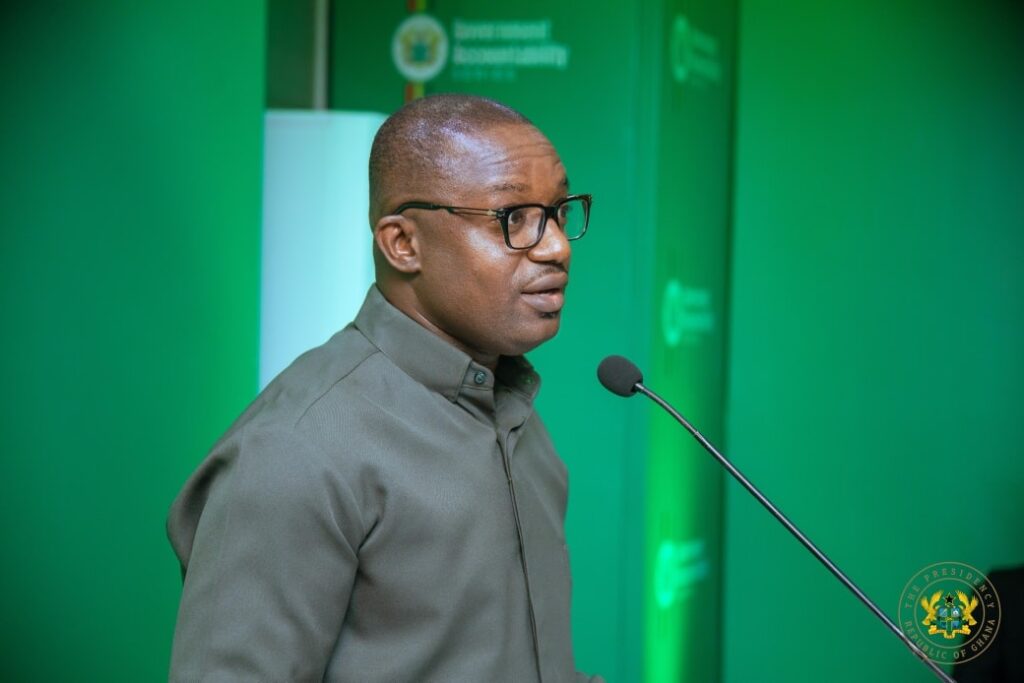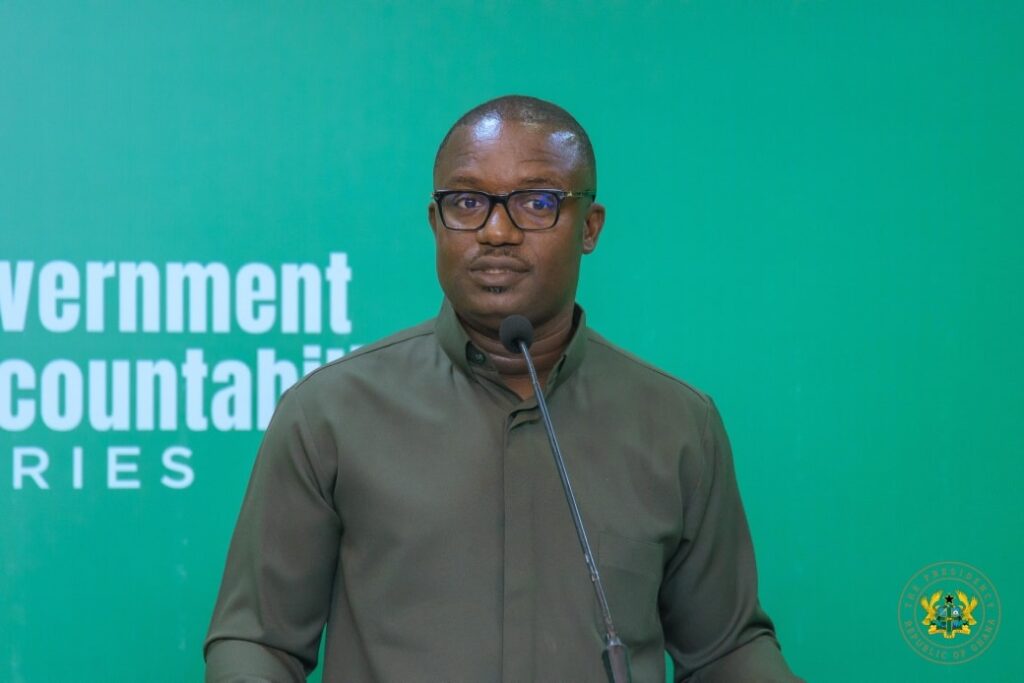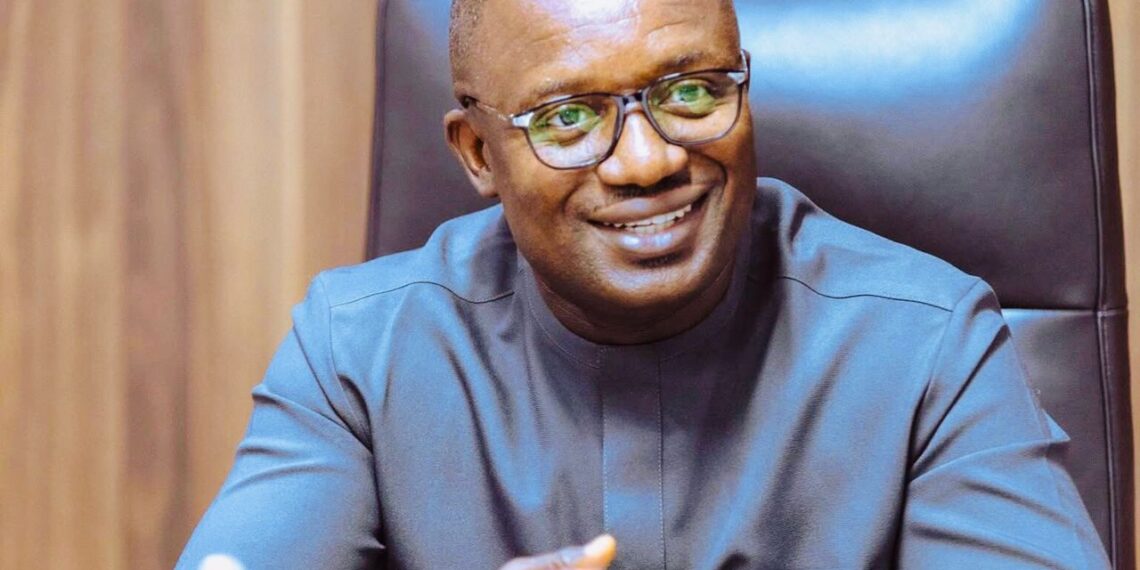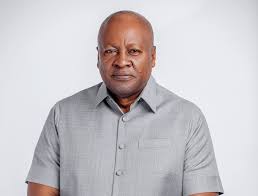The Minister for Energy and Green Transition, Hon. John Abdulai Jinapor, has assured Ghanaians that the government is taking firm steps to clean up inefficiencies within the energy sector and restore fiscal discipline, accountability, and transparency, particularly within the operations of the Electricity Company of Ghana (ECG).
Speaking during the Government Accountability Series organised by the Presidency Communications, the Minister disclosed sweeping reforms being implemented under his watch to boost efficiency, cut waste, and ensure value for money in all power sector transactions.
A major aspect of these reforms, according to Hon. Jinapor, is the rationalisation of ECG’s procurement and contract management systems.
He explained that the ministry has taken decisive steps to review and overhaul numerous supply contracts, many of which failed to meet basic delivery timelines and standards.
“So far, 347 supply contracts that have failed to deliver goods within the specific areas are up for review,” the Minister disclosed. He clarified that these were not the materials previously reported as being locked up at the ports but were rather newly initiated contracts yet to yield any deliveries.
The Energy Minister further revealed that the ECG board has already terminated 202 of those contracts, with a total estimated value of $227 million.
The remaining 145 contracts are currently undergoing further scrutiny and may be terminated depending on the final assessment. “We are determined to ensure that we clean the sector,” he stated firmly.

“Indeed, if you compare this year to last year, in terms of expenditure, we are spending about 30% or 40% of what was spent in 2024 when it comes to procurement, and we are achieving better results with value for money and ensuring that we adhere to strict procurement procedures and processes.”
Minister for Energy and Green Transition, Hon. John Abdulai Jinapor
The financial turnaround efforts are already yielding substantial results. Hon. Jinapor indicated that the Ministry has managed to significantly reduce spending on procurement.
As part of efforts to ensure accountability, Hon. Jinapor also noted that key performance indicators (KPIs) have been signed between the ministry and ECG management, cascading further down to the regional offices. These KPIs will serve as benchmarks for tracking performance and holding officials to account.
Improving ECG Billing System
Another significant milestone highlighted by the Minister was the successful transition to a new billing system known as Zeus.
According to the minister, when he assumed office, it became evident that the old billing system was riddled with irregularities and was no longer fit for purpose.
He disclosed that in just three months, ECG had completed a full transition to the Zeus system, which now supports more transparent and efficient commercial operations. “ECG has successfully transitioned to a new billing system, which they call Zeus, and all other commercial operations have been restored as I speak,” Jinapor confirmed.
To complement the billing reforms, the Ministry has instituted a set of financial control measures aimed at guaranteeing steady payments to players across the energy value chain.
In February 2025, Hon. Jinapor noted that he directed ECG to fully comply with the Cash Waterfall Mechanism (CWM), a framework designed to ensure equitable and transparent disbursement of funds across the sector.
According to him, he also instructed that ECG operate a single holding account at the Ghana Commercial Bank to further streamline cash management.
“I’m happy to announce that all that has been complied with. This is ensuring that so far, there’s a constant flow of cash to electricity generators, fuel suppliers, GRIDCO, VRA, and all the other power sector players.”
Minister for Energy and Green Transition, Hon. John Abdulai Jinapor
These measures, according to the Minister, have played a crucial role in achieving the current power stability in the country.

He noted that for the first six months of this year alone, payments made to Independent Power Producers (IPPs) surpassed the total amount paid throughout the entire previous year.
“It’s because of the prudence and the stringent measures that we’ve put in place. We are not out of the wounds in its entirety but at least we are seeing significant progress, and if we continue on this trajectory, I’m confident that this sector will see real improvement.”
Minister for Energy and Green Transition, Hon. John Abdulai Jinapor
Review of Cash Waterfall Mechanism
President John Dramani Mahama, according to Hon. Jinapor, has also directed a review of the CWM to enhance transparency, efficiency, and equity in the system.
This review is expected to help the government make additional savings, which would be applied judiciously to further improve the sector.
These fiscal reforms are already making a tangible impact. ECG’s monthly revenue, the Minister revealed, has increased by 47.3% compared to the same period last year, a result he attributed directly to the new billing system and financial discipline imposed by the Ministry. Despite this progress, Hon. Jinapor warned against complacency.
“Because of the huge challenges and the debt that we encountered, we need to pursue additional policy measures to ensure that we put the power sector on an even level”.
Minister for Energy and Green Transition, Hon. John Abdulai Jinapor
He reiterated his full commitment to maintaining strict oversight and ensuring that the gains being made are not only sustained but translated into better service for consumers across the country.

Through these ongoing reforms—grounded in transparency, discipline, and accountability—the Ministry of Energy and Green Transition under Hon. Jinapor aims to reposition Ghana’s energy sector as a model of fiscal and operational responsibility.
READ ALSO: GHALII Pushes National Digital Law Portal for Public Access



















